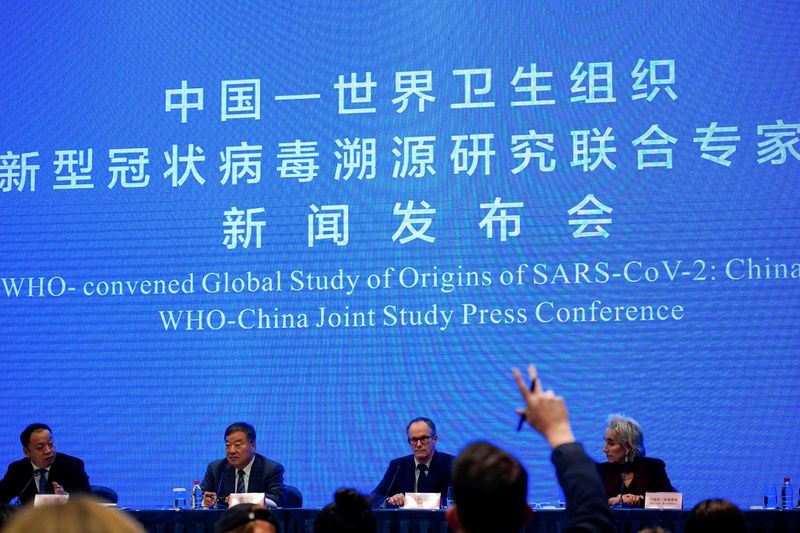SHANGHAI (Reuters) - A joint China-World Health Organization (WHO) study into COVID-19 has provided no credible answers about how the pandemic began, and more rigorous investigations are required - with or without Beijing's involvement, a group of international scientists and researchers said on Wednesday.
The joint study, released last week, said the likeliest transmission route for SARS-CoV-2, the virus that causes COVID-19, involved bats and other wildlife in China and southeast Asia. It all but ruled out the possibility it had leaked from a laboratory.
In an open letter, 24 scientists and researchers from Europe, the United States, Australia and Japan said the study was tainted by politics.
"Their starting point was, let's have as much compromise as is required to get some minimal cooperation from China," said Jamie Metzl, senior fellow at the Atlantic Council think tank, who drafted the letter.
The letter said the study's conclusions were based on unpublished Chinese research, while critical records and biological samples "remain inaccessible".
WHO Director General Tedros Adhanon Ghebreyesus said last week China had withheld data.
Liang Wannian, China's senior COVID-19 expert, denied this and appeared to rule out any further joint investigations in China, saying the focus should shift to other countries.
Metzl said the world might have to "revert to Plan B" and conduct an investigation "in the most systematic way possible" without China's involvement.
China has rejected allegations that SARS-CoV-2 leaked from a research laboratory in Wuhan, the city where COVID-19 was first identified.
The joint China-WHO study said the lab leak was "extremely unlikely", saying there was "no record" that any laboratory had kept SARS-CoV-2-related viruses. Tedros said more research was required to "reach more robust conclusions".
Metzl said China should disclose information that would allow the lab hypothesis to be disproved.

"China has databases of what viruses were being held... there are lab notes of the work that was being done," he said, "There are all kinds of scientists who are actually doing the work and we don't have access to any of those resources, or any of those people."